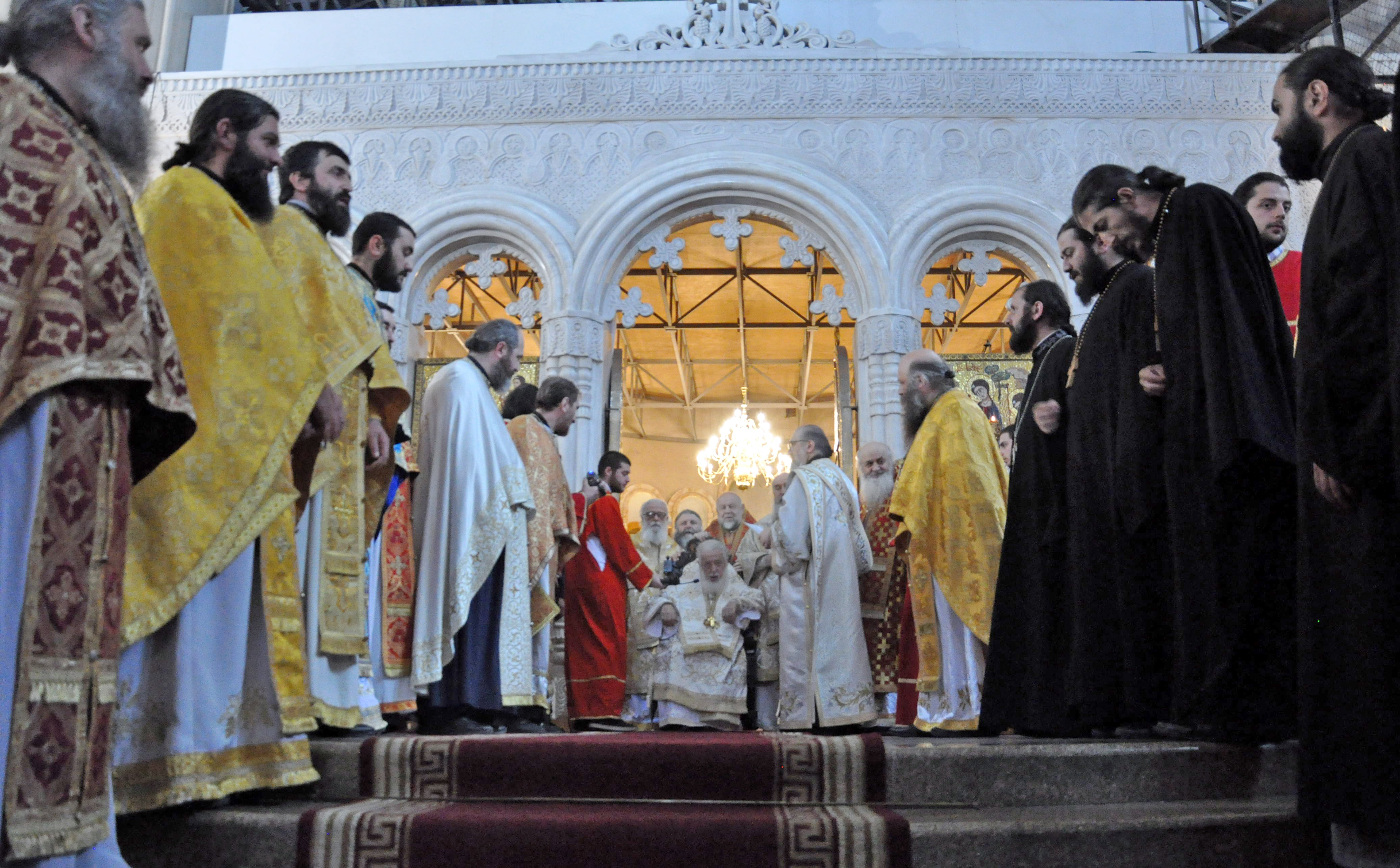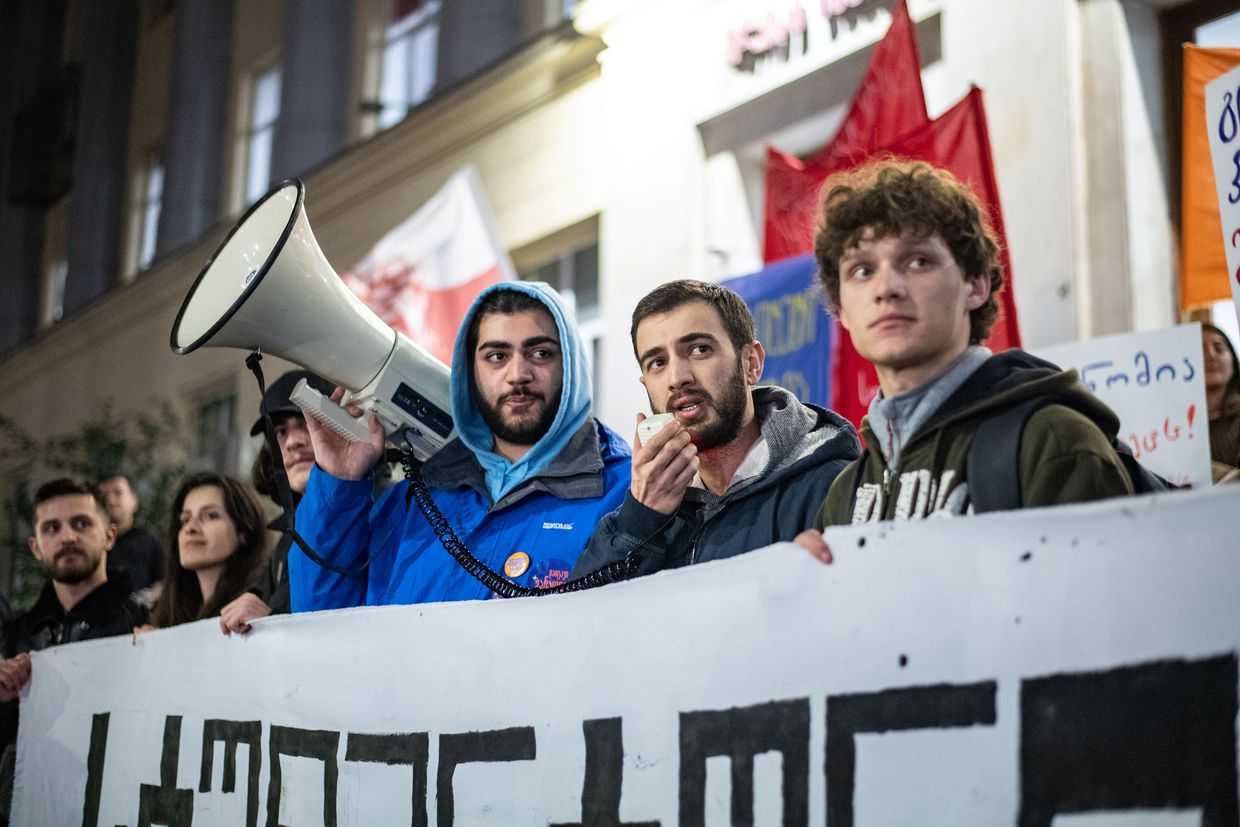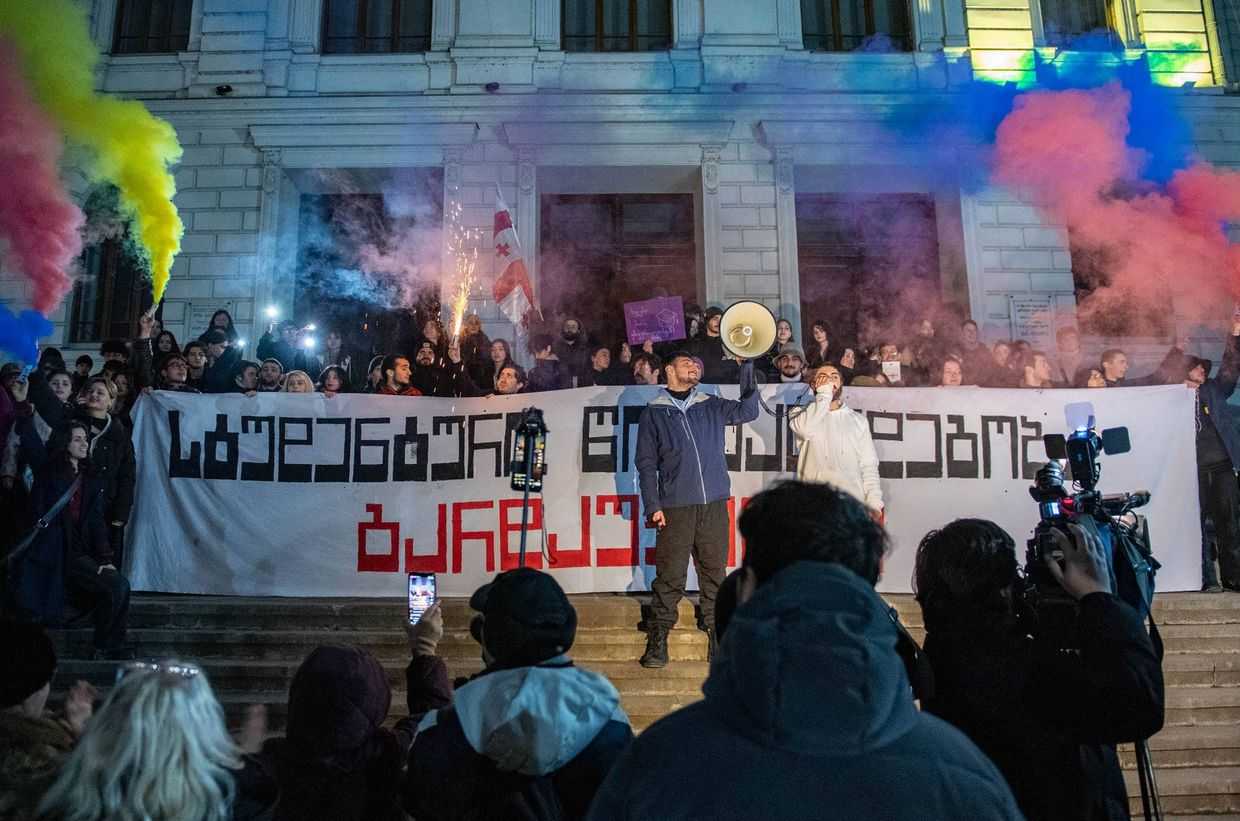

The Georgian government has allocated at least ₾890,000 ($320,000) to celebrate a new religious holiday on 12 May — the country’s consecration to the Virgin Mary.
The declaration was the initiative of the Georgian Orthodox Church and was backed by the government. After being addressed by government, parliament convened an extraordinary session on 8 May and passed the bill in it’s third and final hearing.
Amendments were made to the Georgian Labour Code enshrining the day as a public holiday. The date is already a public holiday in Georgia marking Saint Andrew’s Day.
Ninety-six MPs voted in favour of the bill with none voting against. It was backed by the ruling Georgian Dream Party and the opposition Alliance of Patriots, as well as by a single MP from the European Georgia Party, Gigi Tsereteli.
The head of Parliament’s Human Rights Committee, Sopho Kiladze, told Maestro TV following the vote that ‘It is important for Georgia to be officially declared as the domain of the Virgin Mary’. She said that the holiday had a ‘huge symbolic significance for our society’, and that MPs respect the people’s choice.
Theologian Beka Mindiashvili denounced the move, writing on Facebook that such a declaration by a state speaks of ‘ignorance, arrogance, and the gravest of sin for deviating from Christ’s teaching’.
‘Georgian messianism, the myth that the Georgian nation is distinct from other nations, is heresy and blasphemy’, wrote Mindiashvili, quoting the New Testament.
Icons for emigrants
On 3 May the Government endorsed the schedule of activities to be carried out by various government and non-governmental bodies celebrating the new holiday.
The agenda includes exhibitions on the topic within Georgia’s diplomatic circles, for which ₾73,000 ($27,000) has been allocated to Georgia’s Foreign Ministry.
A total of ₾480,000 ($170,000) was allocated to the Ministry of Education, Sports, and Culture. The ministry will print 50,000 brochures and 50,000 icons which will be disseminated to Georgian emigrants by the consulates.
They will also disseminate 150,000 brochures and 150,000 icons at events in Georgia.
The government has allocated ₾300,000 ($110,000) for the opening of the Iveria Virgin Mary Icon Church in Tbilisi and for a reception at the Funicular Restaurant in Mtatsminda, with members of the government, the Church, diplomatic circles, and other public figures in attendance.
Finally, ₾140,000 ($51,000) will be allocated to the Georgian Orthodox Church to host an international conference
Privileges for the Georgian Orthodox Church
In the past, local rights groups and minority religious organisations have accused the government of unfairly favouring the Georgian Orthodox Church.
[Read on OC Media: Court rules privileges for Georgian Orthodox Church unconstitutional]
While Georgia has no official state religion, the Georgian Orthodox Church has a special status guaranteed by a constitutional agreement between the Church and the state. It was established in 2002 and has since been reflected in other laws, which rights groups say give legal grounds for discrimination suits.
A 2017 study by local rights group the Human Rights Education and Monitoring Centre (EMC) said ‘the relations established under a similar type of constitutional agreement have no analogy in other countries’ and ‘signing an agreement between the State and Church is wrong from a legal standpoint as well’.
‘The structural place of the agreement in the system of normative acts and some entries in the document, violate the idea of secularism, equality and the superiority of human rights’, the report said.
In 2016, EMC and TDI released a study of state funding for the Orthodox Church in 2014–2015. State funding is provided as restitution for damage done and assets seized during Soviet rule.
It found that in 2014, the state provided the Orthodox Church ₾32 million ($13 million), and ₾31 million ($12.7 million) in 2015. On top of this, the church received almost a square kilometre of land from the state and 66,000 square metres from the municipalities. In total, in 2015, the Georgian Orthodox Church possessed almost 17 square kilometres of land, ‘six times bigger than the area of Mtskheta’.
‘The state does not evaluate the costs of the real estate they give to the Church, therefore it becomes impossible to count it with relation to the process of restitution of loss caused in the Soviet times’, the research says.
In 2014, the state started funding four other religious groups for restitution. In 2014 it gave ₾1.8 million ($730,000) to them in total, and ₾3.3 million ($1.4 million) in 2015.
The research said the funding practices of the state were discriminatory and ‘based on the exclusive privilege of the Orthodox Church and obviously violate the constitutional principle of separation between religious organisations and the state’.









